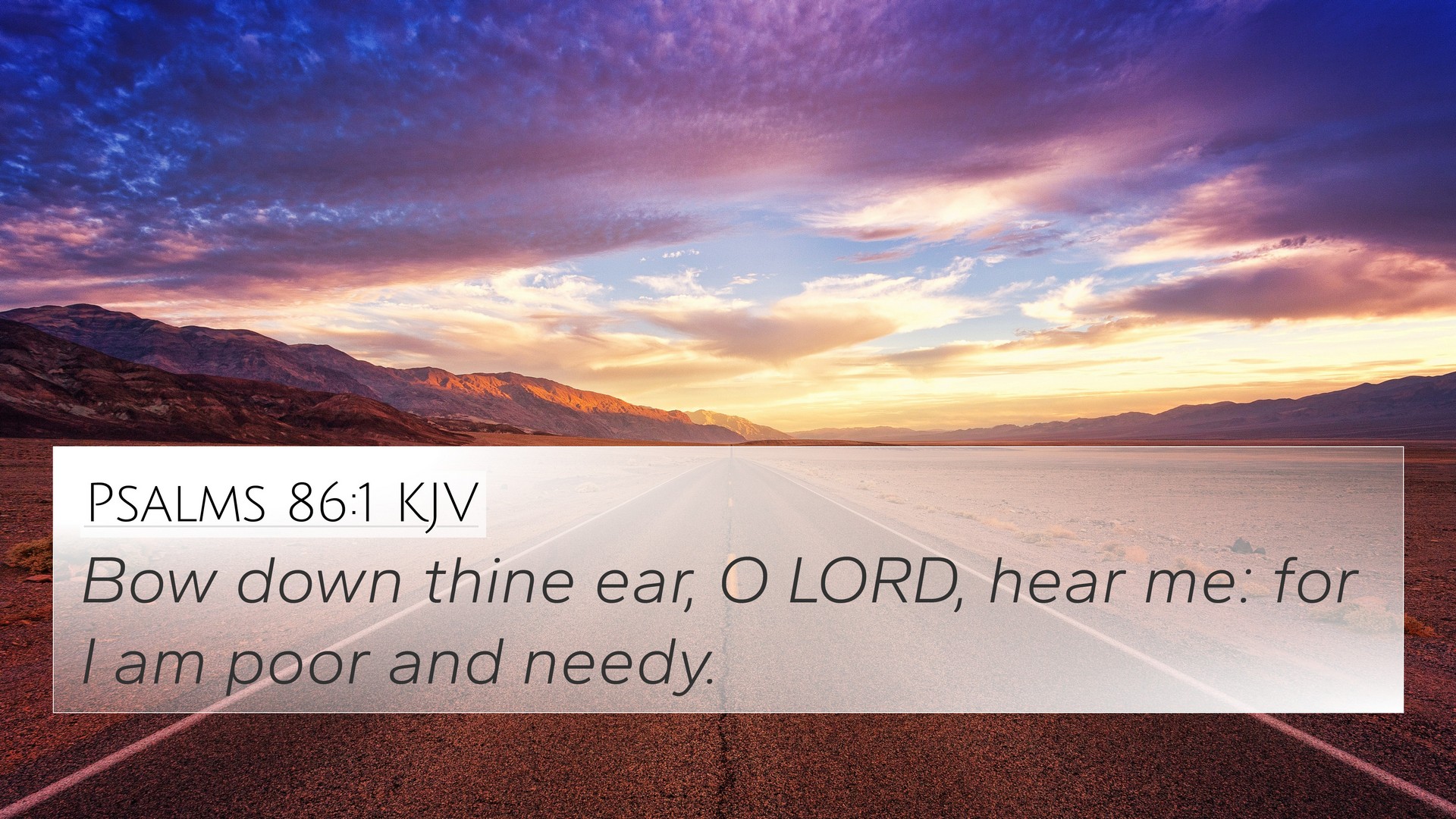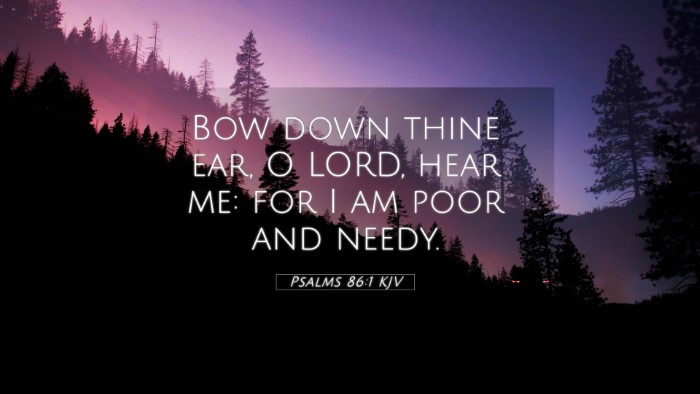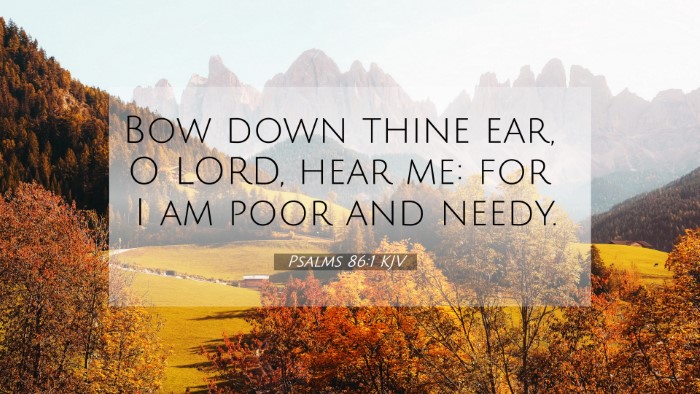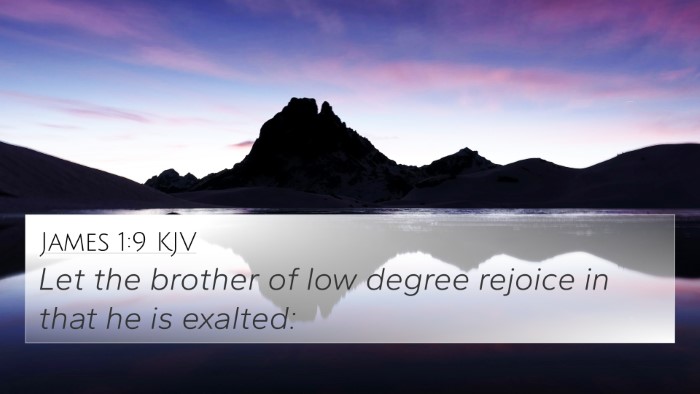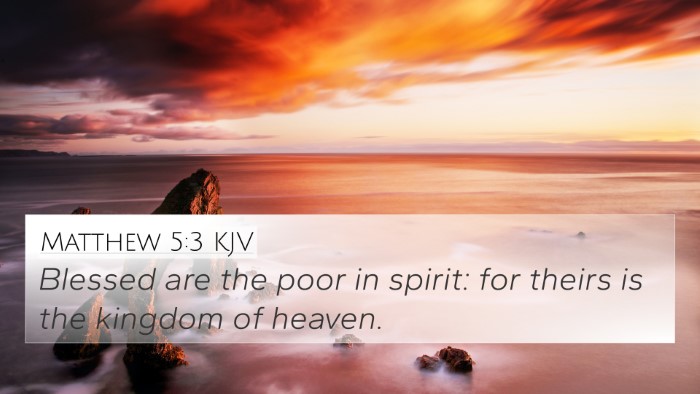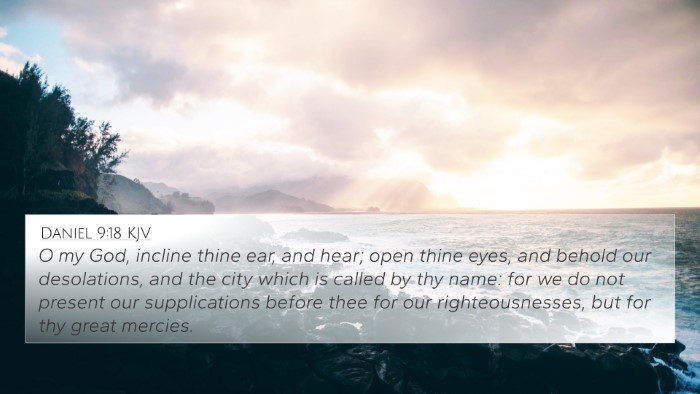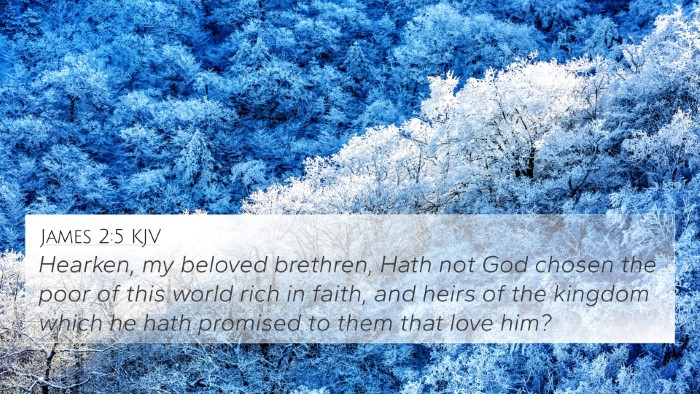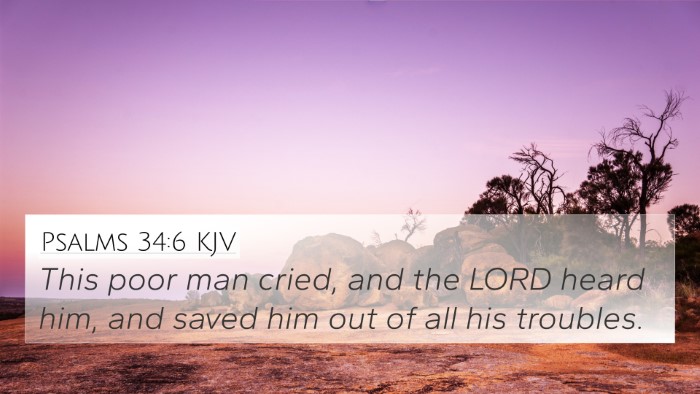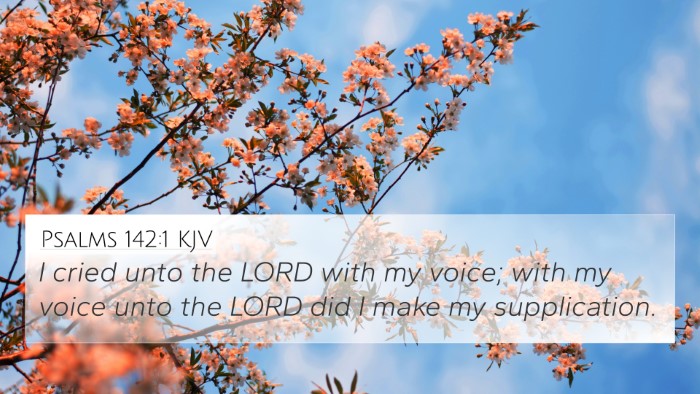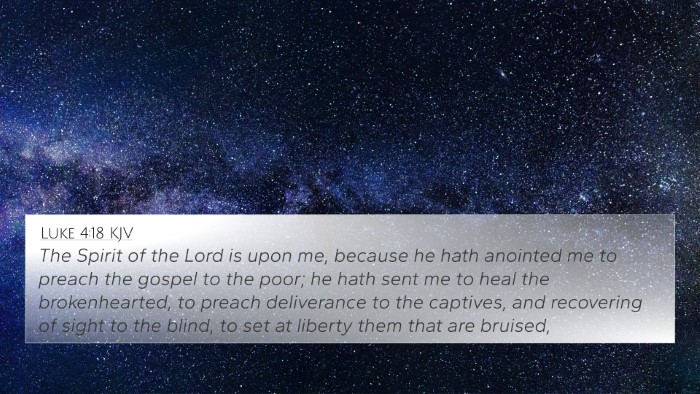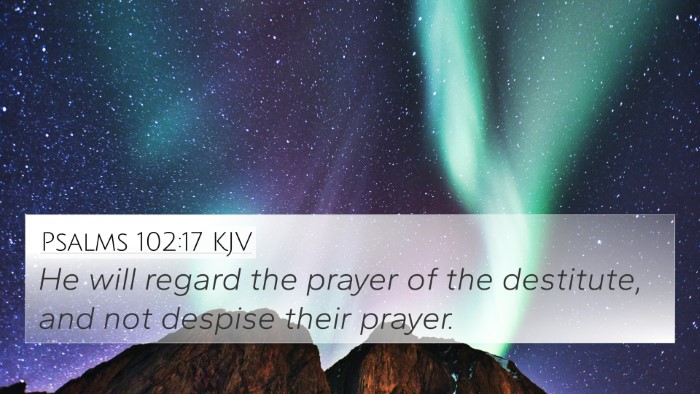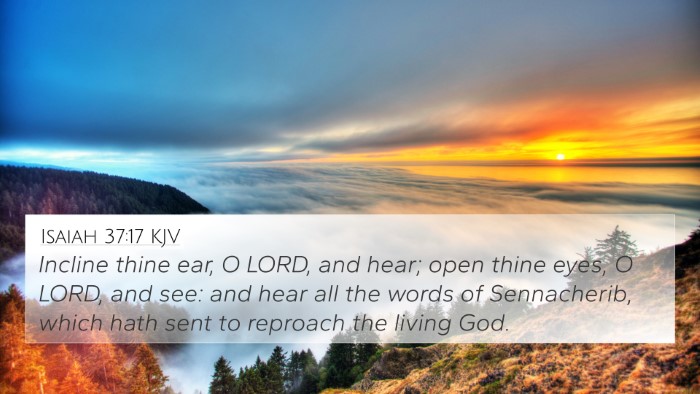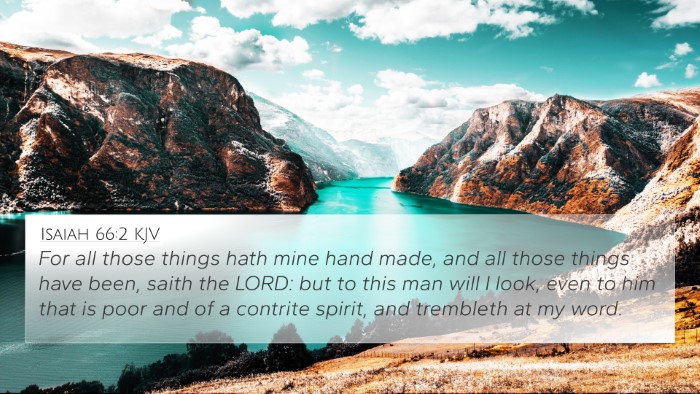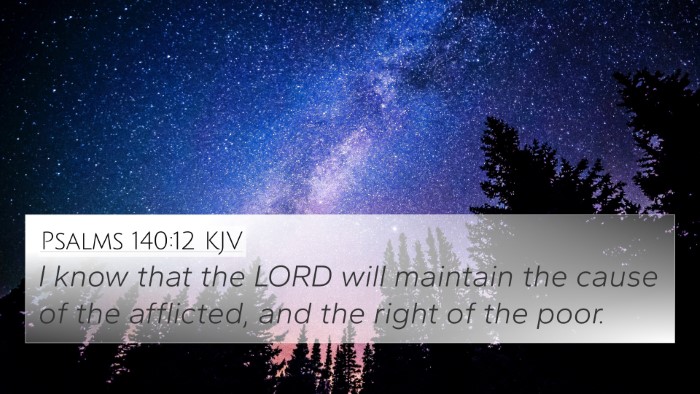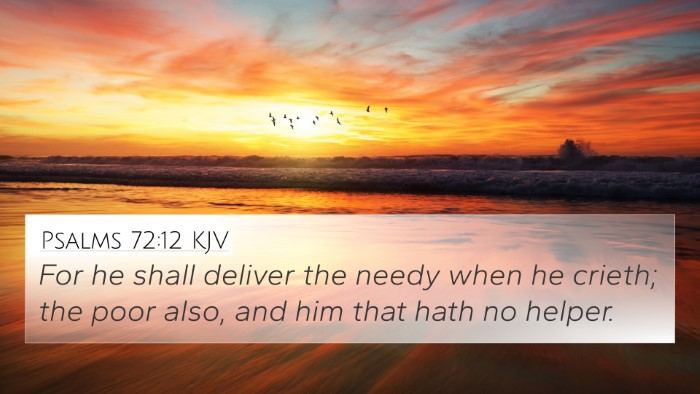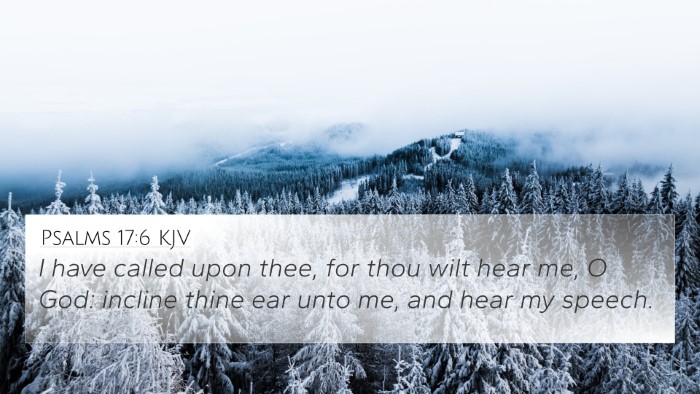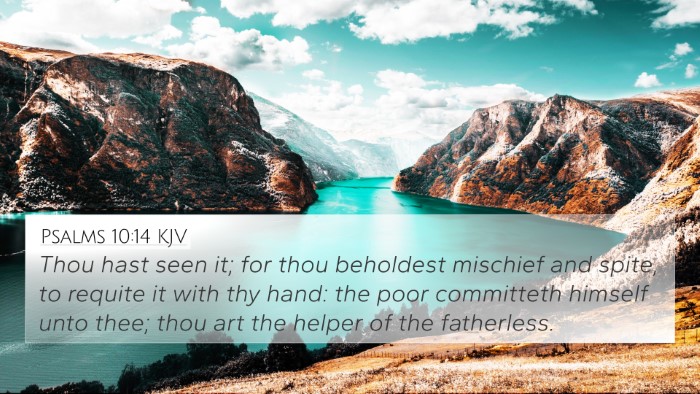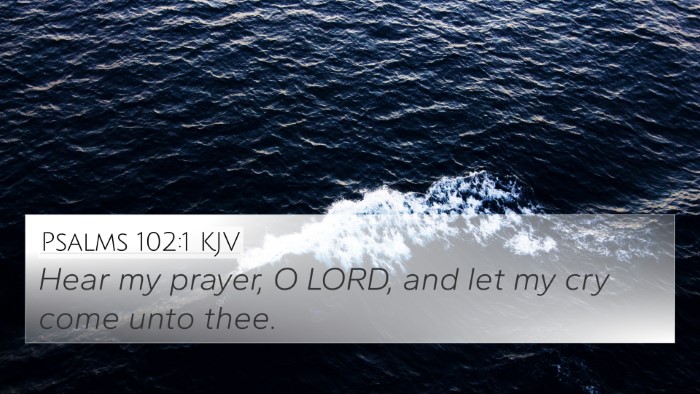Psalms 86:1 Meaning and Interpretation
Psalms 86:1 states: "Bow down thine ear, O Lord, hear me: for I am poor and needy." This verse expresses a deep cry for God's attention and assistance from a place of vulnerability. The psalmist, recognized as David, appeals to God not only for help but also acknowledges his lowly condition.
Summary of Key Themes
- Desperation for Divine Attention: The psalmist implores God to "bow down" His ear, indicating a heartfelt plea for God’s attentive listening.
- Recognition of Need: The description of himself as "poor and needy" highlights both physical and spiritual poverty, illustrating human dependence on God's mercy.
- Faith in God's Compassion: Implicit in this plea is the belief in God’s kindness and willingness to help those who seek Him earnestly.
Insights from Public Domain Commentaries
Matthew Henry comments that the psalmist’s acknowledgement of being "poor and needy" signifies more than material poverty; it reveals a profound spiritual humility. The appeal to God underscores the importance of prayer and communicating with the Almighty as a source of strength for those in distress.
Albert Barnes elaborates on the phrase "Bow down thine ear," suggesting an anthropopathic expression—that is, ascribing human characteristics to God. This metaphor portrays a God who is intimately involved in the affairs of His creation, ready to lend His ear to the cries of His people.
Adam Clarke emphasizes the importance of recognizing one’s neediness as a form of supplication before God. A humble heart is essential in approaching God in prayer, appealing to His mercy, grace, and abundant love for those who are afflicted.
Bible Cross References
- Psalms 34:6: "This poor man cried, and the LORD heard him, and saved him out of all his troubles." This reflects the theme of God listening to the cry of the needy.
- Psalms 40:17: "But I am poor and needy; yet the Lord thinketh upon me: thou art my help and my deliverer; make no tarrying, O my God." This verse reiterates the connection between being needy and divine assistance.
- Psalms 30:2: "O Lord my God, I cried unto thee, and thou hast healed me." This verse acknowledges God’s responsiveness to prayer, emphasizing His role as a healer and helper.
- Psalms 102:17: "He will regard the prayer of the destitute, and not despise their prayer." This reflects God’s attentiveness to those in need, echoing the heart of Psalm 86:1.
- Isaiah 41:17: "When the poor and needy seek water, and there is none, and their tongue faileth for thirst, I the Lord will hear them." The Lord’s commitment to respond to the cries of the needy is evident here.
- Philippians 4:19: "But my God shall supply all your need according to his riches in glory by Christ Jesus." This New Testament verse connects to the theme of God’s provision for those in need.
- Luke 6:20: "And he lifted up his eyes on his disciples, and said, Blessed be ye poor: for yours is the kingdom of God." This beatitude links to the spiritual richness available to those who recognize their poverty.
Comparative Bible Verse Analysis
The theme of being poor and needing help from God resonates throughout both the Old and New Testaments. Such verses reveal a consistent understanding of human fragility and God’s readiness to support those who earnestly seek Him.
Linking Bible Scriptures and Thematic Connections
By linking Psalms 86:1 with various scriptures, one can gain a broader understanding of how themes of desperation, prayer, and divine assistance pervade the Bible. The persistent motif of seeking God’s help underscores the relationship believers share with the Divine.
Tools for Bible Cross-Referencing
Utilizing a Bible concordance can enhance one’s study by identifying related verses, allowing for comprehensive explorations of themes like humility, neediness, and God’s response. Cross-reference Bible study methods provide insights into various scripture correlations, offering enriching perspectives for sermon preparation and personal reflection.
How to Use Bible Cross-References
When engaging in a Bible study focused on specific themes or questions, it’s valuable to identify connections between relevant verses. This practice can lead to a deeper understanding of scriptural messages, promote inter-Biblical dialogue, and enhance spiritual growth through comparative studies.
Psalms 86:1 in Context
Understanding Psalms 86:1 within the context of the psalm as a whole can further illuminate its meaning. The entirety of Psalm 86 encompasses themes of prayer, trust, and reliance on God’s mercy, underscoring the importance of humbly approaching God in all circumstances.
Final Thoughts
In conclusion, Psalms 86:1 serves as a poignant reminder of the need for divine intervention in our lives. It illustrates the beautiful theological concept of God actively listening to His creation, especially those who recognize their need for Him. As believers, the act of prayer is not only a call for help but also a significant aspect of our relationship with God.
